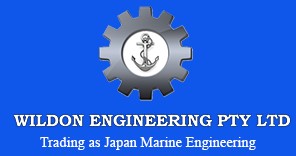Possible Causes of an Overheating Marine Diesel Engine
Blog | January 31st, 2019It’s bad enough when a diesel engine overheats in a car. Still, at least the driver can pull over to the side of the road and call a repair truck out. Then the auto mechanic can fix the problem. At sea, an overheating marine diesel engine isn’t something an engineer wants to deal with, not when it could bring the vessel to a halt for several long days.
Signs of an Overheating Engine
So the propulsion system is stalling? It’s clearly ailing, but the boat owner doesn’t know what’s gone wrong. If a marine engine is overheating, one of the following issues will become clear. Right off the bat, is the engine temperature gauge on the boat’s instrument panel raising a red flag of concern? Dipping into the red, that rising needle can’t be ignored. The next warning sign, a cloud of steam billowing out the back of the engine housing, suggests a superhot exhaust manifold. The cooling water is still flowing, but it’s evaporating as soon as it makes contact with the hot engine components. A smell, a rise in engine pitch, these and other overheating symptoms are the propulsion system’s way of telling a boat skipper that things need to cool down right now.
Overheating Marine Engines: The Possible Causes
The boat is in trouble, and it’s trying to tell the ship captain things have taken a turn for the worse. Let’s hope the skipper is alert today. After cutting fuel to the powerplant, it’s time to do a little troubleshooting. Are the vessel fluids at their assigned level? Lubricant and coolant levels must be satisfactorily high. What about the air intake? Is the seawater keeping the air intake temperature low? Talking of seawater, is there a clog in the system? If there is, the engine cooling system won’t operate properly. Even the lubricant could start breaking down, again, because of the thermal energy. Excess heat can impact oil viscosity, so a coolant intake check should be high on the diagnostics checklist, as should a test of the water pump and/or any engine connected fan belt.
Diesel engines generate copious quantities of heat. Keeping that energy from destroying the engine, there are various coolers and heat exchangers located throughout the engine housing. They cool the fuel and oil. The engine parts stay within their operational specs when these thermal energies are properly managed. A blocked seawater filter, a damaged drive belt, a tendency to “rev” a marine engine for long periods of time, these are just some of the causative factors that can make marine diesel engines overheat.
Optimized by NetwizardSEO.com.au
Recent Posts
- Yanmar Diesel Generators: Planned vs Predictive Maintenance Strategies for Remote Operations
- Mareflex SOLAS Marine Tapes: Safety Applications on Marine Vessels
- Yanmar Propulsion Systems: FPP vs CPP Propellers for 6EY and 6N Series Fuel Efficiency
- Mitsubishi K.K. Purifier Separator: The Key to Cleaner Fuel and Smoother Operations
- Kemel Air Seal Retrofits: Leak-Free Stern Tube Seals and Reduced Lube-Oil Risk
- Yanmar Auxiliary Generators: Sizing for Reefers, Hotel Loads, and Dynamic Positioning Systems
- Water Lubricated Stern Tube Bearing (EVR): Proven Technology for Smooth and Quiet Operations
- Marine Spare Parts Australia: Genuine Components for All Vessel Types
- Yanmar Diesel Generators – Powering Remote and Off-Grid Operations
- Authorised YANMAR Parts Supplier in Australia – Genuine Components Guaranteed
